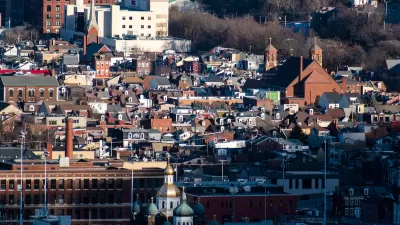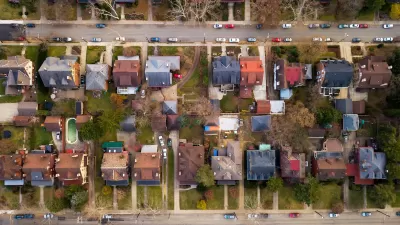The city is seeking ways to boost affordable housing development and encourage mixed-use, transit-oriented development.

Renee Fox reports on the city of Columbus' efforts to reform their zoning code and redress historical injustices, make building easier, and encourage affordable housing development. "The city’s code was written in the 1950s when city planning tools to keep certain neighborhoods for white people with money were spreading like wildfire in cities like Columbus, [Glennon Sweeney, senior research associate at The Ohio State University’s Kirwan Institute for the Study of Race and Ethnicity] said."
According to the article, "The code isn’t just racist, the piecemeal maze also makes it complicated, time-consuming and costly to create the types of projects the city wants to see developed." Michael Stevens, the city’s director of development, is quoted as saying, "In its current form it is inadequate at facilitating affordable housing, protecting job centers and encouraging transit-supportive mixed-use corridors that are needed to help all of our residents thrive."
The city commissioned a study to outline the challenges posed by the outdated zoning code and recommendations for adapting it to modern needs. "Stevens said the city wants to encourage infill development, the type that occurs in places where development already existed, but existing code encourages development in areas previously untouched, creating sprawl."
As Fox writes, "The code is expected to take several years to rehaul, but planners are looking into addressing identified growth corridors sooner. The city is entering the second phase of the project where it will use a consultant to gather community input and start developing ideas for the new code."
FULL STORY: Columbus' zoning code reform seeks to correct wrongs of the past, make building easier

Maui's Vacation Rental Debate Turns Ugly
Verbal attacks, misinformation campaigns and fistfights plague a high-stakes debate to convert thousands of vacation rentals into long-term housing.

Planetizen Federal Action Tracker
A weekly monitor of how Trump’s orders and actions are impacting planners and planning in America.

In Urban Planning, AI Prompting Could be the New Design Thinking
Creativity has long been key to great urban design. What if we see AI as our new creative partner?

Making Shared Micromobility More Inclusive
Cities and shared mobility system operators can do more to include people with disabilities in planning and operations, per a new report.

Car Designs Make it Harder to See Pedestrians
Blind spots created by thicker pillars built to withstand rollover crashes are creating dangerous conditions for people outside vehicles.

Cal Fire Chatbot Fails to Answer Basic Questions
An AI chatbot designed to provide information about wildfires can’t answer questions about evacuation orders, among other problems.
Urban Design for Planners 1: Software Tools
This six-course series explores essential urban design concepts using open source software and equips planners with the tools they need to participate fully in the urban design process.
Planning for Universal Design
Learn the tools for implementing Universal Design in planning regulations.
Appalachian Highlands Housing Partners
Gallatin County Department of Planning & Community Development
Heyer Gruel & Associates PA
Mpact (founded as Rail~Volution)
City of Camden Redevelopment Agency
City of Astoria
City of Portland
City of Laramie





























